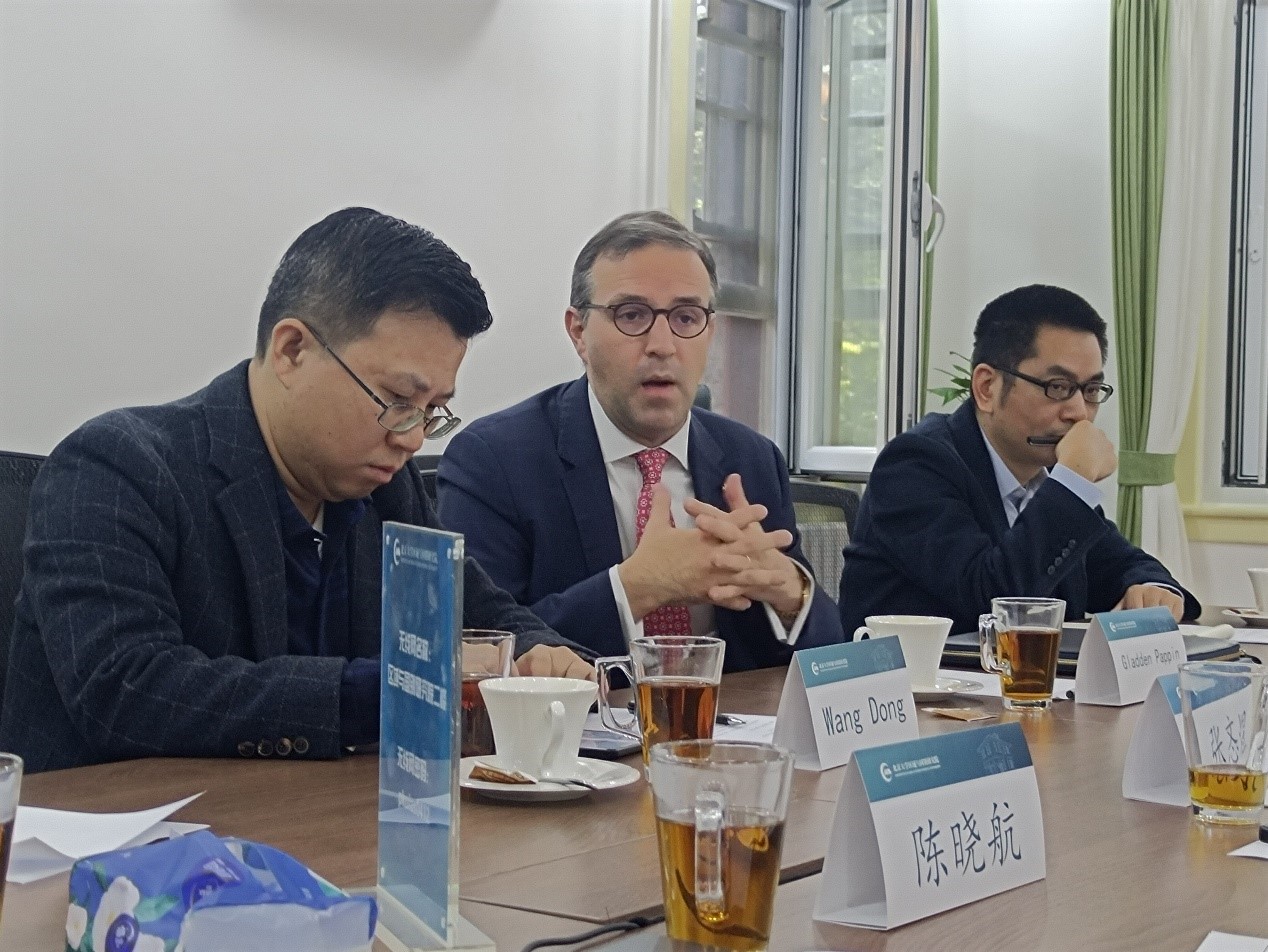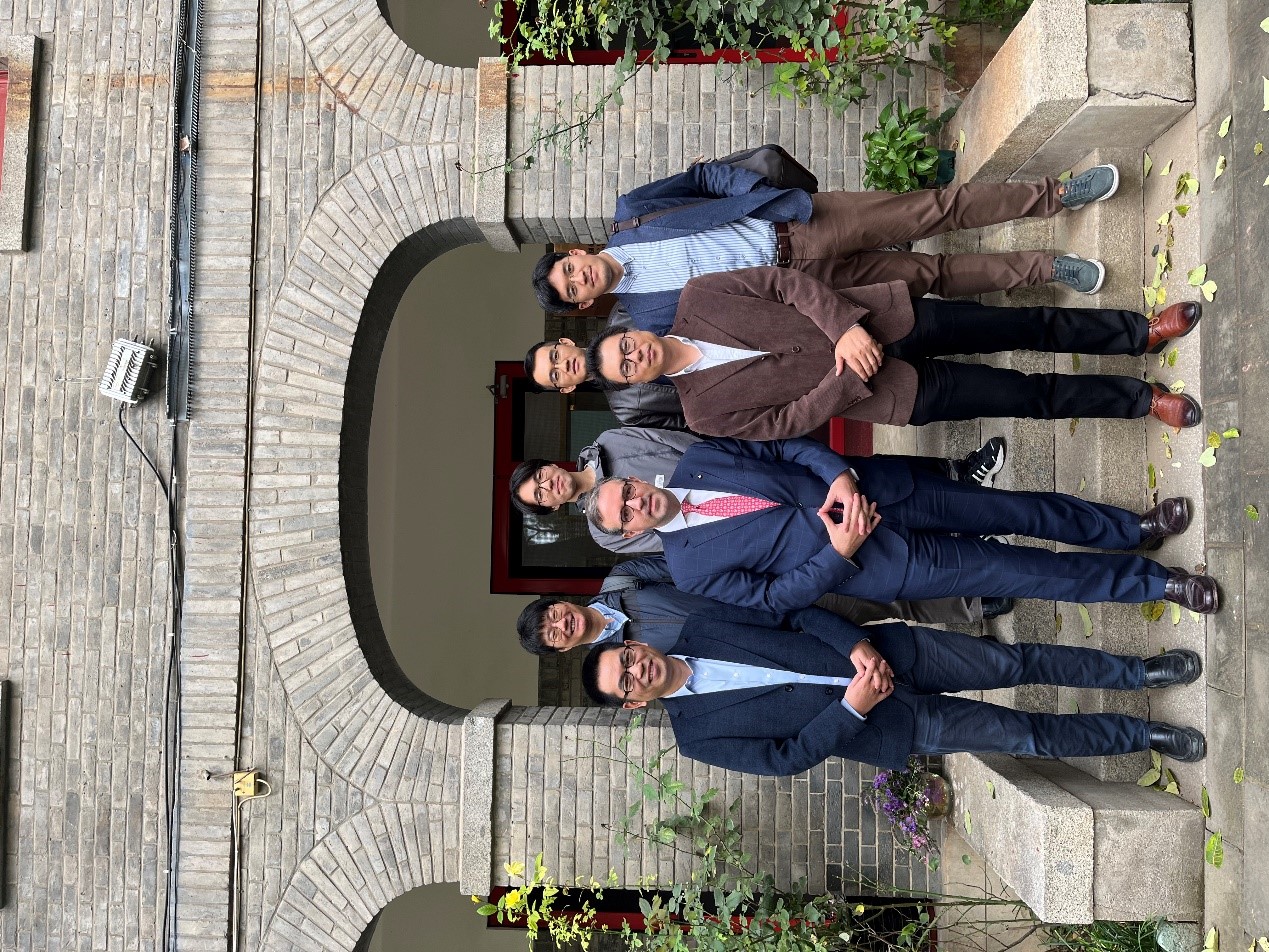The 7th lecture of the “Adventus Amicorum” salon series was held on October 18, 2023, by the Institute of Area Studies, Peking University (PKUIAS), during which Prof. Gladden Pappin, president of the Hungarian Institute of International Affairs and visiting senior fellow of Mathias Corvinus Collegium, shared his thoughts on the topic, “The Postliberal Global Order: Hungarian and American Perspectives.”The lecture was moderated by Zhang Yongle, deputy director of PKUIAS. Other participants included Prof. Wang Dong, vice director of the Office of Humanities and Social Sciences; Prof. Duan Demin, deputy director of the Institute of Humanities and Social Sciences of Peking University; Wei Nanzhi, research fellow of the Institute of American Studies of the Chinese Academy of Social Sciences; and Prof. Zhang Minyu, assistant professor of the School of Foreign Languages, Peking University.

Prof. Pappin began his presentation by stressing that the theme of his talk was to explore the impact of ideological changes in recent years on the global political order from the parallel perspectives of Hungary and the US. In order to shed more light on this issue, Prof. Pappin briefly introduced his interviews with diplomats and politicians in the US. He pointed out that although the US had achieved long-term world hegemony after the collapse of the Soviet Union and the end of the Cold War, it still needed to face various challenges brought about by changes in the current world order. With the collapse of the Soviet Union, the ideology and cultural system of liberal democracy held by the US and other Western states have been unprecedently expanded. According to Prof. Pappin, this required the support of various international economic institutions and the top military strength of the US. At the same time, the ideology and cultural system advocated by the US around the world in turn consolidated the economic and military power of the US.
Next, Prof. Pappin explained in detail the reasons for the decline of the liberal global order led by the US by reviewing the foreign policy of US governments and the changes in economic growth after the end of Cold War. He expressed his view that in the US, there had long been a dispute about foreign policy and domestic political order, which has caused its foreign policy to be vulnerable to change. In the meantime, with the development of information technology and the signing of the North American Free Trade Agreement (NAFTA), the traditional manufacturing industry in the US gradually declined. The rapid rise of the IT industry led to a completely different media publicity and information exchange. Liberalism, which originally emphasized the coexistence of different ways of life, has become increasingly intolerant of traditional ways of life on issues such as family, gender and sexual orientation. Transformations in industrial economics and ideology led to the election of Donald Trump as US president in 2016. Yet the US still faces formidable obstacles to its national initiative and reindustrialization, making it difficult to adjust to the changes in the global order.
Finally, Prof. Pappin discussed the implications of these changes for Hungary and Europe. Because of the uniqueness of its language, culture and history, Hungary intends to maintain its initiative in the cultural value system that the US continues to promote abroad, and to play a role of bridge between the Eastern and Western cultural value systems, Prof. Pappin said. Hungary has advocated a democracy based on its cultural and historical traditions—not a liberal democracy—that protects the family and accepts the role of the state in the industrialization process. Hungary has also maintained relative autonomy relative to the EU. All of this has allowed Hungary to play an active role as a driving force in a post-liberal global order.

During the discussion session, members of the audience had an in-depth exchange and discussion with Prof. Pappin. Wang Dong referred to his research experience in having an in-depth discussion with Prof. Pappin on the trend of the post-liberal global order. Wei Nanzhi emphasized the impact of recent domestic industrial development and social consensus changes on the formulation of foreign policies in the US. Duan Demin shared his view about the role of European countries such as Ukraine in the post-liberal global order. Zhang Minyu discussed the influence of the postliberal global order on the unique culture, history and traditional ideology of South Asian democracies such as India and Pakistan. Zhang Yongle conducted an in-depth discussion with Prof. Pappin on the impact of the postliberal global order on the traditional concept of state. Prof. Pappin responded positively to each of these discussions.


